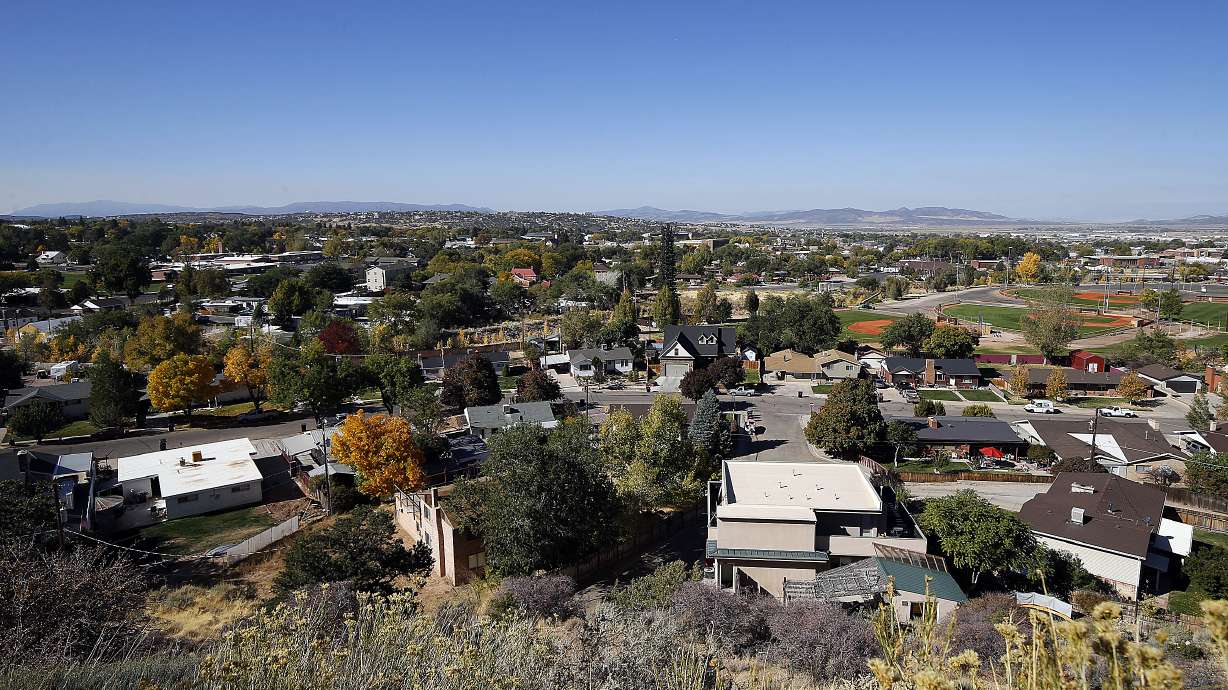Estimated read time: 3-4 minutes
This archived news story is available only for your personal, non-commercial use. Information in the story may be outdated or superseded by additional information. Reading or replaying the story in its archived form does not constitute a republication of the story.
CEDAR CITY — All Utah agencies will be required to review which jobs could be conducted remotely or be relocated to rural parts of the state, according to a pair of executive orders issued by Gov. Spencer Cox Monday morning.
Cox and Lt. Gov. Deidre Henderson both signed the orders from the governor's new remote office on the campus of Southern Utah University shortly after he revealed his first budget proposal heading into the 2021 legislative session that begins next week.
The goal for the executive orders, Cox said, is to expand remote working opportunities for all state agency jobs throughout Utah and to review which state positions or offices could be moved to rural parts of the state — thus saving on Wasatch Front building costs and congestion concerns.
"Together, these two executive orders will be good for rural Utah and good for the taxpayer," he said.
The first order came after the COVID-19 pandemic led to an experimental work-from-home design for nearly half of the state's employees.
"During the pandemic, we found that 40% of state employees worked outside of the office, which has resulted in savings for the taxpayer and higher employee satisfaction," Cox said. "I've asked agencies to complete these reviews by July 1."
The second order also seeks for state agencies to develop education opportunities for rural residents. This would include working with private companies "to ensure rural employment opportunities," he added.
Related:
The governor announced in December that Stephen Lisonbee would serve as a senior advisor on rural affairs for his administration, a newly-created position. Cox explained that redistricting from population shifts to more urban communities continues to pull representation away from rural parts of the state.
"Stephen will be in the room when all of these meetings are happening, representing Utah's rural communities and helping to align resources with opportunities and raise the profile of rural issues when we're together," Cox said.
The cabinet position allows for someone to rove around rural Utah to provide feedback to the governor's office about issues pertaining to rural Utah. The position also helps provide development opportunities for communities throughout rural Utah.
In addition, the governor's office opened its brand new office that's located at Old Main on SUU's campus. Cox, Henderson and other governor's office staff will have access to it.
SUU President Scott Wyatt pointed out that the university itself in Cedar City was Utah's first "experiment" in long education. The university first opened in 1897 as the Branch Normal School and provided education to those unable to move to Salt Lake City for education.
Now, more than a century later, Wyatt asserted that places like Cedar City can benefit Utahns in a slightly different way. Government offices on SUU's campus and facilities across rural Utah could help lower the cost of building along the Wasatch Front, which is becoming increasingly expensive. It could also help limit adding emissions in an area suffering from air quality concerns.
"Opportunities in rural Utah serve everyone," he said. "For example, for every person working remotely from rural Utah is potentially one less car in the congested I-15, one less source of air pollution. One more savings for taxpayers in building new facilities in high-cost real estate up in the highly-populated areas."
Those are benefits Cox also alluded to prior to signing his executive orders.
The governor's $21.7 billion budget proposal for the 2022 fiscal year included several provisions for rural Utah. Among them is a $125 million request for rural infrastructure, which would include $69 million for a rural infrastructure revolving loan fund, $50 million for rural broadband expansion and $6 million would go toward election vehicle charging stations in rural Utah.











